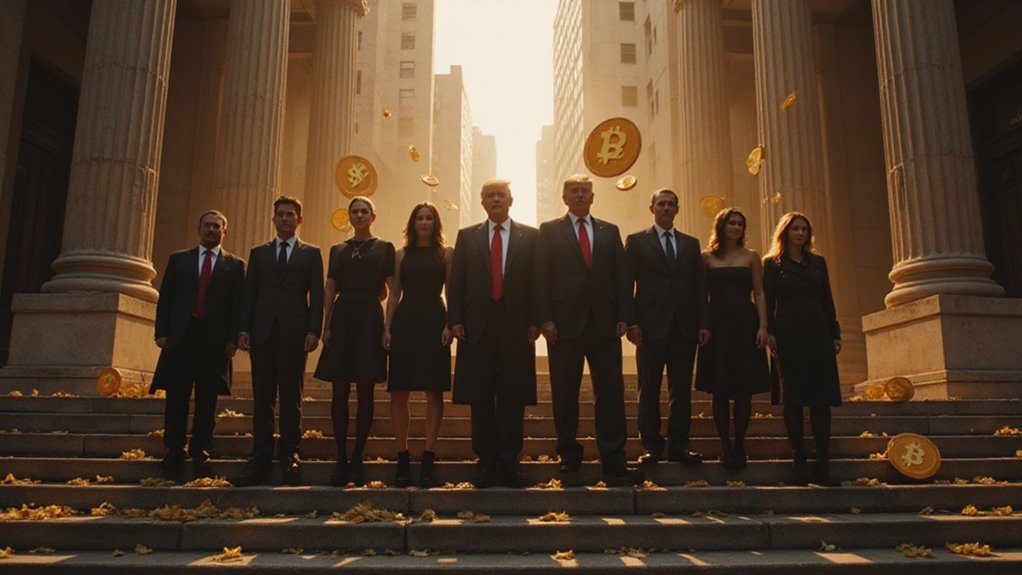The convergence of political celebrity and cryptocurrency speculation has produced its latest offspring: World Liberty Financial, a blockchain venture that lists Donald Trump as “co-founder emeritus” and harbors ambitions to raise $1.5 billion through a Nasdaq listing. The firm offers USD1, a dollar-pegged stablecoin, alongside governance tokens (WLFI) evolving from restricted utility to open-market trading—because what crypto venture doesn’t eventually succumb to the siren call of public speculation?
WLF’s audacious capital raise follows the MicroStrategy playbook, planning a shell acquisition to create a publicly traded digital-asset treasury company. The Trump family maintains roughly 60% equity while high-profile investors like Justin Sun have contributed approximately $30 million to the $550 million already raised through token sales. One might question whether this represents shrewd financial engineering or an elaborate monetization of political brand equity.
When political celebrity meets cryptocurrency ambition, the line between financial innovation and brand monetization becomes deliciously blurred.
The venture’s Nasdaq aspirations arrive amid a broader “crypto treasury” phenomenon that has attracted over $79 billion in 2025, mainly for Bitcoin accumulation. WLF’s focus on smaller, less liquid tokens like WLFI presents considerably higher risk profiles compared to Bitcoin-centric entities—a distinction that institutional investors will certainly scrutinize with appropriate wariness. The company has already initiated discussions with high-profile tech investors to secure additional capital and strengthen its market position.
Beyond mere speculation, World Liberty Financial envisions expanding into decentralized finance through crypto-lending applications, positioning itself as a bridge between blockchain technology and traditional finance. This strategy benefits from Trump-era regulations permitting cryptocurrency investments in 401(k) accounts, creating potential pathways for retirement fund participation in what was once considered fringe speculation. The stablecoin sector faces significant cybersecurity risks that could threaten user funds and platform integrity across blockchain systems. Companies like Paxos, operating as a regulated trust company, demonstrate how proper regulatory compliance can provide transparency and institutional-grade security for digital asset operations.
The political implications prove equally fascinating. A former president’s family venture raises inevitable questions about conflicts of interest, regulatory favoritism, and the appropriate intersection of political influence with emerging financial technologies.
The initiative simultaneously legitimizes cryptocurrency’s mainstream integration while inviting scrutiny regarding transparency and governance standards.
Whether World Liberty Financial represents innovative financial engineering or opportunistic political monetization remains an open question. The venture’s success will likely depend on its ability to navigate regulatory complexities, deliver substantive DeFi products, and convince institutional investors that political celebrity translates into sustainable blockchain innovation.
The crypto community watches with characteristic mixture of enthusiasm and skepticism.






